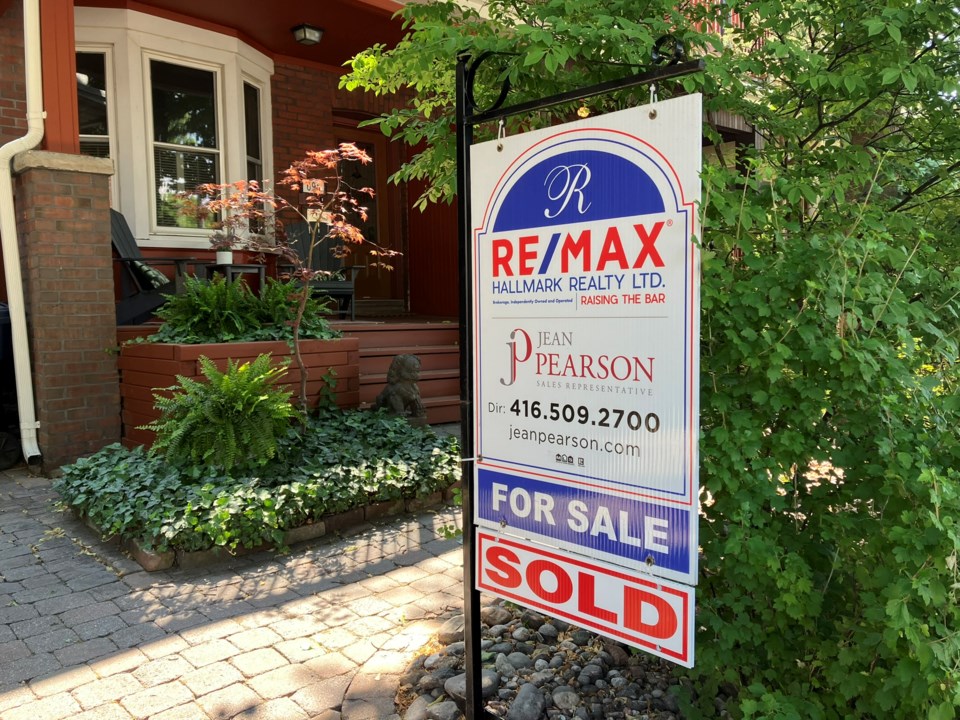The land transfer tax is a cash cow for the City of Toronto. Introduced in 2008, the tax applies to all home sales in the city and has raised hundreds of millions annually. It drew in over $1 billion in both 2021 and 2022 to support the city budget.
As home sales slowed over the last two years thanks to high interest rates, the normally dependable revenue source drew hundreds of millions less, according to the city’s audited financial statements.
Mayor Olivia Chow’s recently unveiled 2025 budget expects the tax revenue to rebound this year and raise nearly $1 billion, or five per cent of city expenditures, a $90-million increase from 2024.
Cautious optimism
That assumption, however, isn’t made lightly.
On Monday, Stephen Conforti, Toronto’s chief financial officer, said while the city is “expecting there to be some growth in our land transfer tax revenue, we take that step cautiously.”
Conforti said he’s seen increased housing market activity that’s giving him hope, such as declining interest rates and other factors that “could drive further home sales.”
One real estate expert predicts sales to increase but not prices — which could spell some trouble for city revenue because the tax depends on both the number of home sales and house prices. The higher a home’s purchase price, the more the city raises.
Christopher Alexander, president of ReMax, said he’s expecting “pretty flat price increases” but “a lot more transactions in the entry-level space” such as condos and townhomes.
“The first-time homebuyer cohort that's been missing for the last two-and-a-half to three years, they're going to be back in a big way,” Alexander said. “So we need to see a lot more transactions in the lower end to make up that $90 million.”
In 2024, the average home selling price was just over $1.1 million, down slightly from 2023, according to statistics from the Toronto Regional Real Estate Board (TRREB).
The first-time home buyer question
Aside from additional interest rate cuts, federal policy changes should help spur sales, Alexander said.
The federal government extended mortgage amortization periods from 25 to 30 years for all first-time buyers and increased the $1-million price cap for insured mortgages to $1.5 million.
“Those two measures alone are going to help give [first-time buyers] a push to get into the market,” Alexander said.
However, TRREB president Elechia Barry-Sproule said first-time buyers could keep their powder dry in anticipation of more interest rate cuts.
“Looking ahead, more interest rate cuts will be required before first-time home buyers and average home buying households can comfortably afford monthly mortgage payments and move into the homeownership market,” she added.
Conforti highlighted two new measures that could also further increase Toronto’s revenues. The city recently introduced a new tax rate of 7.5 per cent for homes sold over $20 million and enacted an additional 10 per cent tax on non-resident buyers.
Other headwinds and unpredictability
While Alexander said he’s been “preaching cautious optimism,” there are “real headwinds” facing the city’s real estate market that could affect sales and land transfer tax revenue.
“Unemployment, I’m watching it very closely,” he said. It has “a direct correlation to market activity.”
Toronto’s unemployment rate — now over eight per cent — has been steadily rising from around six per cent since early 2023, Statistics Canada data show.
If it keeps going up, “we’ll see suppressed market activity,” Alexander said.
The other big wildcard is tariffs from incoming U.S. President Donald Trump.
“If the U.S. tariffs come in, as originally proposed by Trump, that could create a lot of job loss,” Alexander said.
Barry-Sproule also preached caution because “the situation surrounding tariffs is still evolving.”
Overall, Barry-Sproule said banking on the land transfer tax is a risky proposition.
“The city should not rely on the land transfer tax as a major revenue source since it can be unpredictable based on market activity. By increasing their revenue projections they could open themselves to revenue gaps if the market is not performing well.”
